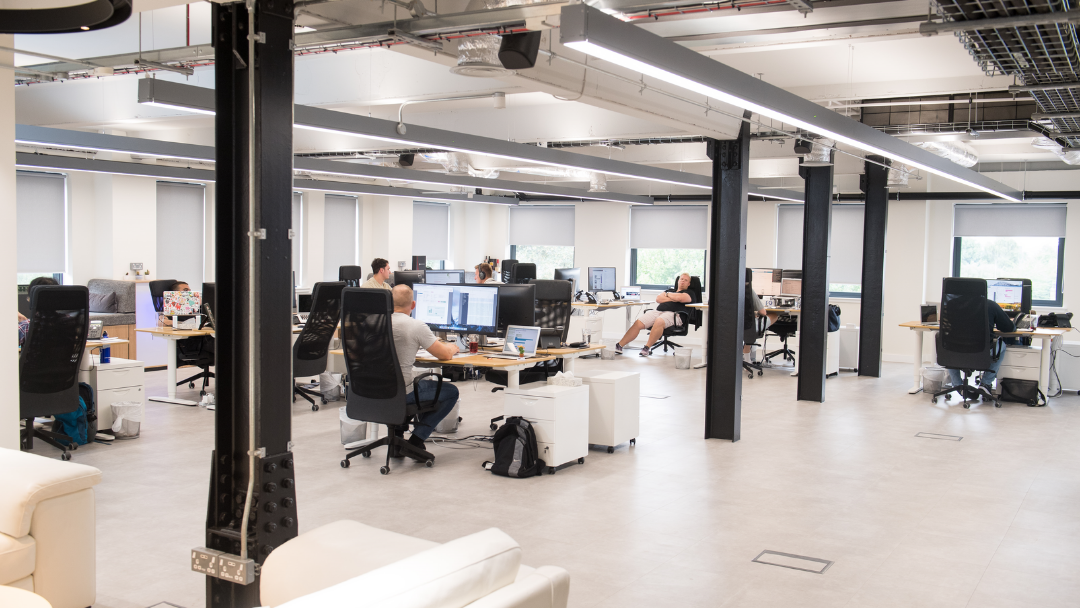A recent RICS UK Facilities Management Survey¹ revealed that up to 80 % of employees will head back to the office once the pandemic is resolved and many anticipate that workspaces will evolve to meet the changing needs of employees and employers.
Richard Kauntze, Chief Executive, British Council for Offices (BCO) is confident that the future of working in the office is bright and definitely here to stay. When meeting people outside of the industry, I often receive the same
sort of question: “I guess you’re against all this home-working business, then?” It’s assumed that here at the BCO, we must be stubborn and keen only to defend the pre-pandemic status quo. The truth, however, is quite different.
The change likely to take place (a move to a more ‘mixed’ way of working; balancing time at home with the office) is a good thing and will make the office better and more important. To be clear, home working is not going to become our only way of working. The office is here to stay because we work best together. In person, we are more creative, more able to network, and we learn from colleagues in an informal way which can’t be replicated over Teams or Zoom. Offices help companies build their corporate culture in a way the virtual world simply can’t replicate.
Innovation
However, home working does present a new form of competition. Some fi rms, particularly those looking to make savings, may think twice about their office space. That, inevitably, will drive even greater progress and nnovation in the UK’s already world-leading office sector. What’s more, the new considerations forced by COVID will lead to a fl ight to quality. If you are going to be in the office, it had better be good.
Take airflow. It may not sound exciting, but it is important. A recent BCO report, Thoughts on ventilation design and operation post COVID-19 highlights how many UK offi ces need to improve their airfl ow systems. Previously, this may have seemed a luxury, but COVID has changed this.
Now, it’s seen as a vital step in fighting the current pandemic and, perhaps, future ones. What’s more, improved airflow has also been shown to enhance our mental wellbeing.
Greener offices
The new way of working will free up space in offices, too. UK offi ces are well known for being tightly packed, particularly in London, due to the high cost of space. In 2019, the BCO held its annual conference in Copenhagen. There we saw the benefits of light and space in uniquely Danish office designs, which are made spacious to encourage arbejdsglæde (‘work joy’). If companies keep their space, we could see similarly spacious, wellbeing-boosting designs become more common in the UK.
COVID has shown the need for all of us to respond proactively to crises, including the climate crisis. New, green technologies are being developed and the sector is rapidly becoming greener, driven both by occupiers’ demands and the industry’s own desire to do even better.
In particular, we are seeing the growth of refurbishments, with old, often disused buildings – from dated industrial parks to dilapidated factories – turned into new, vibrant offices. It is a more sustainable option than building from scratch and something explored in a recent interview with Nicola Rutt, partner at Hawkins Brown and a
refurbishment expert, as part of our The Office Briefing YouTube and podcast series.
These are just some changes we are seeing, driven by our new context. Clearly, the office has a bright future. Its use might change, but its importance will – if anything – increase. As we spend more time working at home, having a truly great place to come together will be nothing less than vital.


